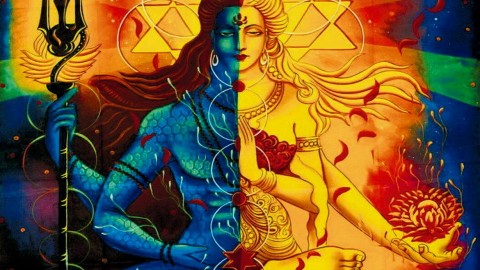Action And Activity – In Gita Verse 1.31 I do not see how any good can come from killing my own kinsmen in this battle, nor can I, my dear Kṛṣṇa, desire any subsequent victory, kingdom or happiness.
O Keshav, I see the opposite reason. No one perceives any benefit in killing one’s own people in war. O Krishna, I do not desire victory, nor do I seek a kingdom or sensual pleasure.
Arjuna’s words reflect a conditional mindset. He has not yet dispelled the illusion of happiness. He questions the value of happiness obtained through the killing of his own kin. He wonders about the worth of a kingdom gained at such a cost. If happiness and a kingdom could be achieved without such bloodshed, Arjuna would gladly accept them. He does not doubt the possibility of achieving happiness and welfare; his doubts lie in the necessity of killing his own people to attain them.
Understanding this state of mind is crucial. Many of us think in similar terms. Wehnger’s book, “The Philosophy of As If,” explores this concept, suggesting that life is often predicated on conditional thinking. If certain conditions are met, happiness and welfare seem attainable; if not, they appear elusive. However, the paradox is that true happiness cannot be achieved by those who cling to conditions. The pursuit of happiness, seen as conditional, often leads to the discovery of new sorrows. The illusion of happiness transforms into sorrow upon attainment, leaving no solution in sight.
Arjuna’s perspective becomes increasingly unconscious as he begins to view the war in terms of victory and defeat. While evaluating actions is necessary, he loses sight of his universal assignment.
Every action we undertake must be evaluated concerning our universal duty. Logical thinking and direction are essential in this evaluation.
The mind is an excellent tool for maintaining independence and alertness. It is an effective fighter, useful when standing up for liberty. However, context matters, and a conscious individual must use their capacities appropriately without confusion. Just as eyes are for seeing and ears for hearing, each faculty must be used in its proper context without interference.
This quality should be harnessed to fight, to become more conscious, and to liberate oneself from unconsciousness. Subjectivity alone knows no way to fight.
The mind is a powerful instrument that must be sharpened but kept within its limitations. It should serve our subjectivity. When the mind becomes the master, subjectivity diminishes. In such a scenario, subjectivity cannot thrive.
There is no contradiction in these statements; they simply pertain to different contexts. A conscious person can utilise subjectivity or the mind as needed and can silence both when seeking a state of nirvana, where neither is necessary. In this state, one simply exists.
If you master your instruments, there is no issue. If you have a flute and cannot stop playing it when asked, it indicates a problem. The flute should not control you; you should control the flute. Similarly, the mind must stop when commanded. If it doesn’t, urgent action is needed. This situation is dangerous: the servant is attempting to become the master. The servant should remain a servant, and the master should remain the master. Beyond both lies your being, which is neither servant nor master; it simply is. This state of ‘isness’ is the goal of all meditations.
Understanding the difference between action and activity is also essential:
Action stems from energy and delight, while activity is businesslike. Action is poetic, whereas activity creates bondage due to its result-oriented nature. Activity is performed for a goal, leading to frustration when the goal is not achieved. Even when the goal is achieved, it often leads to disappointment as the anticipated dreams remain unfulfilled.
Activity implies a goal; it is merely a means to an end. Action, however, integrates the means and the end. This distinction is crucial.
Arjuna unconsciously shifts from his subjective world to the objective world, transitioning from action to activity. Fear of the unknown grips him. Even if he wins the war, he is unsure how to handle his victory, as his words imply that there will be no one with whom to celebrate. He views the war as an object to showcase his victory, not as a universal assignment.
When the universe assigns us a task, it clearly indicates the purpose of the end result. Victory becomes an assignment, not a celebration of strength.
In my blog on Bhagavad Gita Verse 1.13, I mentioned that In scientific experiments, expected results are considered resources. Similarly, victory should be viewed as a resource, allowing one to connect with their subjectivity.
When we are unconscious of ourselves, like Arjuna, we miss our responsibility towards existence. At such times, we should turn to God, not to fulfill our desires but to help us regain our consciousness and subjectivity.
Tags: Action And Activity





